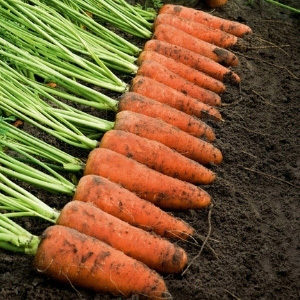How To Plant Vegetable Seeds?

Introduction: Why Plant Your Own Vegetable Seeds?
Many people ask, why plant your own vegetable seeds? Vegetables are a vital part of everyone’s diet. They are packed with nutrients and antioxidants that are essential for good health. One of the best ways to ensure you’re getting the most nutritious vegetables is to grow your own. Here are four reasons why you should plant your own vegetable seeds:
1. You know exactly what’s in them. When you grow your own vegetables, you know exactly what has gone into them. There are no hidden pesticides or herbicides that could potentially harm your health.
2. They taste better. Homegrown vegetables just taste better than store-bought ones. This is because they’re fresher and haven’t been sitting on a shelf for who knows how long.
3. They’re more affordable. Growing your own vegetables can save you a lot of money in the long run.
Seed Selection: What To Look For When Choosing Seeds
When it comes to vegetable seed selection, there are a few key things to look for in order to ensure you are getting quality seeds. First, you want to make sure the seeds are from a reputable source. This can be a local nursery or garden centre or an online retailer. Second, you want to check the germination rate of the seeds. This information should be readily available from the source. Third, you want to choose seeds that are appropriate for your growing region and climate. And finally, you want to select seeds that are well-suited for your gardening style and needs. With a little research, you can find the perfect vegetable seeds for your home garden.
When it comes to vegetable seeds, there are a few key things to look for. First and foremost, you want to make sure the seeds are appropriate for your climate. There are warm weather vegetables and cool weather vegetables, so be sure to select seeds that will do well in the temperature range of your area. Next, take a look at the space you have available. Some vegetables require more space than others, so you’ll need to choose seeds that will fit in the area you have. Finally, consider how much time and effort you’re willing to put into your garden. Some vegetables are easier to care for than others, so if you’re looking for a low-maintenance garden, be sure to select easy-to-grow vegetables. With these factors in mind, you can narrow down your seed options and find the perfect ones for your garden.
Soil Preparation: Creating The Perfect Environment For Your Seeds
When it comes to planting vegetable seeds, the old adage “it’s all in the preparation” definitely holds true. The key to getting your seeds off to a good start is creating the perfect environment for them to germinate and grow.
One of the most important aspects of soil preparation is making sure it has the right pH level. Most vegetables prefer a slightly acidic soil, around 6.0 on the pH scale. You can test your soil’s pH level with a simple home test kit before you plant.
If your soil is too alkaline, you can amend it by adding sulfur or peat moss. Too acidic? Add some agricultural lime. Once you’ve adjusted the pH level, you’ll also want to make sure your soil is loose and well-aerated. This will help your seeds germinate more quickly and evenly.
Planting: The Best Way To Get Your Seeds In The Ground
You can grow your own food even if you don’t have a lot of space. All you need is a little bit of soil and some sunlight. Planting vegetable seeds is the best way to get started.
Vegetable seeds are easy to find and relatively cheap. You can buy them online or at your local garden centre. Once you have your seeds, it’s time to get started.
The best time to plant vegetable seeds is in the spring. This gives them plenty of time to grow before the hot summer sun arrives. If you live in a colder climate, you can start your seeds indoors and then transplant them outdoors later on.
Starting From Seed Is Often The Best Way
When it comes to vegetable gardening, starting from seed is often the best way to go. Not only is it more economical than purchasing transplants, but you also have a greater variety of seeds to choose from. Plus, growing your own transplants from seed can be a fun and rewarding experience.
If you’re new to seed planting, don’t be discouraged if your first attempt isn’t perfect. Just like with anything else, the more you do it, the better you’ll get at it. To help you get started on the right foot, here are some tips for planting your vegetable seeds:
1. Choose the right type of seed for your climate and soil conditions. Not all vegetables will do well in every region, so it’s important to choose varieties that are well-suited for your particular growing conditions.
2. Start with fresh seeds.
Caring For Your Seedlings: How To Ensure They Thrive
When you have finally decided to take the plunge and grow your own vegetables, it is important to make sure that your seedlings thrive. Here are a few tips on how to care for your seedlings to ensure they have the best chance at a healthy life.
First, make sure you start with healthy seeds. This may seem like a no-brainer, but it is important to inspect your seeds before planting them. If you are unsure about the quality of your seeds, it is better to err on the side of caution and buy new ones.
Second, pay attention to the temperature and moisture levels of your soil. Too much or too little water can be detrimental to your seedlings. Make sure you check the soil regularly and adjust accordingly. The same goes for temperature – make sure your seedlings are not in an area that gets too hot or too cold.
Conclusion: The Benefits Of Planting Your Own Vegetable Seeds
When you plant your own vegetable seeds, you get to control the quality of the plants. This means that you can choose to only use organic materials, which is healthier for both you and the environment. You also get to save money by not having to purchase plants from a nursery. Plus, it’s a fun and rewarding experience to watch your vegetables grow from tiny seeds into full-fledged plants.
There are many benefits to planting your own vegetable seeds. One benefit is that you can choose the type of seed you want to plant. Another benefit is that you can control the amount of fertilizer and pesticide used on the plants. Finally, harvesting your own vegetables can be a very rewarding Experience.
